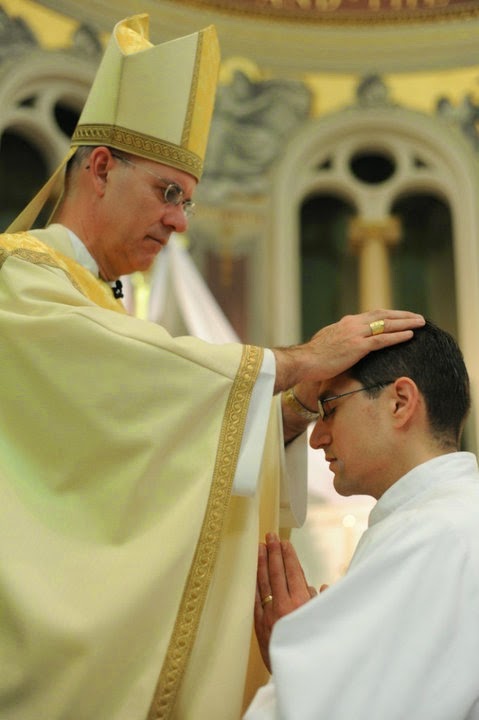In last week’s gospel reading Mark tells us that the people in the crowd that followed Jesus “were like sheep without a shepherd.” I can imagine that there were all kinds of people in this multitude. Rich and poor, wise and foolish, saint and sinner. Who wouldn’t want to get a glimpse of this prophet who was healing the sick and the lame?
Mark also tells us that Jesus is tired, he was looking to rest with his disciples, they were taking some time off. Yet, when Jesus looks up and sees the multitude, what is His first response? Compassion! A genuine act of loving concern that moves Him to do two things. First, as Mark tells us, He teaches them many things. Then, as we see in both Mark and John, he seeks to feed them by way of a miracle.
I believe there is an important principle here for all of us who would seek to share the good news with our lost world. That principle is compassion. Compassion must precede and accompany any encounter we have with another when sharing the gospel, because, if we do not sincerely love this crowd as Jesus did, they will know it, they will sense it in our expressions in our words and in our body language, and they will not really care for what we have to say.
Saint Paul describes aspects of the love and compassion we ought to be practicing inside the church in today’s second reading. He tells the Ephesians to preserve the unity of the spirit through the bond of peace”. How? “with all humility and gentleness, with patience.” These same virtues must extend to those outside our walls.
Once they know we genuinely care, our teaching, our sharing of the gospel, and even some of it’s most difficult truths can follow; however, we cannot stop at that; we must meet their needs. The miracle Jesus performs gives validity to his teaching and demonstrates to the crowd that Jesus is more than words. And that he is truly that great prophet promised in the OT akin to Elijah.
At the end of the miracle, Jesus has them collect all the leftover fragments and there are 12 baskets full. I propose that these represent a foreshadowing of the commission he will give his apostles at the Last Supper. They are primarily responsible for continuing this work, to meet the crowds with compassion, to teach them, to meet their needs. They are to be the shepherds for the shepherdless.
We can still find contemporary examples of this apostolic leadership. I have seen it is many of our bishops, our most recent popes, and especially Pope Francis. In fact, Pope Francis has lead with so much compassion that some wonder if he agrees with Church teaching or not, but I encourage you not to read the reports and to read his actual words. Pope Francis is teaching and living the Church’s social doctrine quite beautifully. In order to appreciate what he has been doing, I had to extract myself from our highly politicized society, full of intrigue and opinion, and see that his example follows our current series of gospel readings.
The pope is leading with compassion, he is teaching “with all humility, gentleness, and patience, and he is specifically teaching about the “crowd”, the crowd is not just the American believers, or the Western Church, but includes the entire breadth and depth of humanity rich or poor, wise and foolish, saint and sinner. We must all follow the lead of Christ, and of our pope, in realizing how our privileged lives affect the underprivileged especially now in a global economy. Having seen the effects of the wealthier nations on other regions, the pope is calling all Christians to be leaders in recognizing the communal nature of our actions. Preaching the gospel and being good stewards of the Earth’s resources are bound together. What good is it if we offer gospel truth without compassion and sacrificial action, without recognizing that sometimes what we take for granted has a negative effect on others in the world.
I want to be careful to avoid any notion that confuses compassion with compromise. Compassion is a cultivation tool. Compassion softens the soil of another person’s heart and prepares them for the seed we hope to sow; therefore, we lead with compassion, but eventually, we must seek to reach the crowds with Jesus message, and we ought not compromise the truths He entrusted to the Church.
Next week, you will hear how this crowd follows Jesus again, and he continues his teaching. He will claim to be the bread of life. He will tell them that they must eat his flesh and drink his blood in order to have eternal life. He will emphasise the fact that he has the power to give himself to us in this mysterious way, and many of his disciples will leave because he does not water down the meaning of his words. Yes, Jesus has compassion, he taught them many things that they were willing to accept, but eventually there is the one teaching they cannot accept no matter how lovingly and compassionately he communicates it. He does not compromise and peacefully he lets them walk away.
Likewise, we cannot be afraid to teach Catholic Truth nor should we try to accommodate the crowd by trying to make it sound as something it is not. Eventually, the truth will be clearly stated by the Church and they may walk away anyhow. As faithful Christians, we must not be among those who walk away. Christ has given us shepherds, they hold the baskets. You and I have the responsibility of joining and assisting them in their work of leading with compassion. Softening the soil, so that the truth can take root once it is proclaimed.
